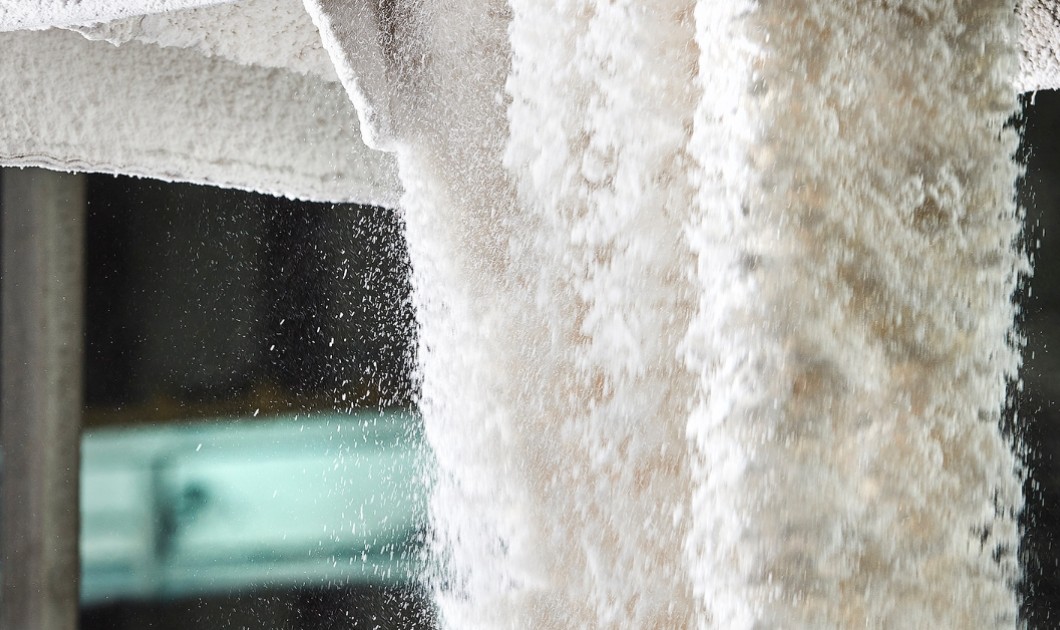If you open the cupboard above the oven in every house, in every corner of the planet, you will find one thing. Salt! While we all use salt in the kitchen on a daily basis, we barely have a clue about the thousands of indirect uses of salt. Salt's unique properties make it an essential ingredient in various industrial processes and in the production of quality products, helping to elevate our lives in ways one cannot imagine.
Let us understand the essential uses of salt in industrial production and its vital role in improving the quality and efficiency of industrial operations.

Salt use in the textile industry
In the textile industry, salt is used to improve the dyeing process. It facilitates the proper absorption of dyes, the stabilization of colors and the removal of impurities from the fabric. It thus contributes to the production of resistant and high-quality products with vivid colors.
Salt is also used in the production of leather goods. More specifically, in the tanning industry, salt reduces moisture and bacteria during the leather processing operation.

Salt use in the food industry
Salt is widely used in the food industry, particularly in processing and preservation. It assists in controlling the growth of bacteria and other microorganisms and enhances the taste and texture in various foods. It is most widely used in cheese production, charcuterie, cured fish and canned products.
Salt usage in the pharmaceutical and cosmetic industry
Salt is used in the pharmaceutical industry to improve drug properties such as solubility and bioavailability. It is also used as an excipient to improve drug performance, shelf life and convenience of use. Salt is also used in saline which is a 0,9% salt solution and has the same osmotic pressure as blood plasma.
In cosmetics, industrial salt is used to give texture, stability and durability. It is used in the manufacture of soaps and shampoos, in spa products and in specialty products for acne and psoriasis.
Salt in the oil and gas industry
Salt increases the density of drilling fluids, helping to optimize the oil and gas extraction process. It also helps to remove impurities from the extraction products and to reduce pipeline corrosion, thus cutting maintenance costs.
Salt usage in the metal processing industry
The use of industrial salt in the metallurgical industry involves the removal of impurities during the refining or smelting of metals such as aluminum, copper, steel, etc.
Salt usage in the chemical industry
Salt (sodium chloride) has many applications in the chemical industry. In particular, salt is used directly or indirectly in the production of chemicals such as sodium sulphate, hydrochloric acid, calcium chloride, sodium carbonate and others. Sodium carbonate is used in the production of glass, sodium bicarbonate, pigments and many other chemical applications.

Salt usage in the detergent industry
Salt dissolves grease and dirt and also operates in conjunction with other detergent ingredients, such as saponifiers and surfactants, improving their effectiveness.
Salt usage in the energy industry
Molten nitrate salt is used in Concentrated Solar Power (CSP) systems because of its ability to retain heat. These systems harness the solar energy to heat the salt, which can then be stored and used to generate electricity when needed, even during periods of no sunlight. This approach improves the efficiency of solar energy, ensuring a steady energy supply. Concentrated solar power is suitable for large-scale electricity production at relatively low cost.
In conclusion, salt is a versatile and indispensable ingredient in various industrial operations. Its unique properties make it essential for the production of a range of intermediate and end products. The multi-faceted benefits of salt in industrial production underline its importance in modern manufacturing. Discover how Dadakarides S.A. industrial salt can enhance your production process and add value to your products.

